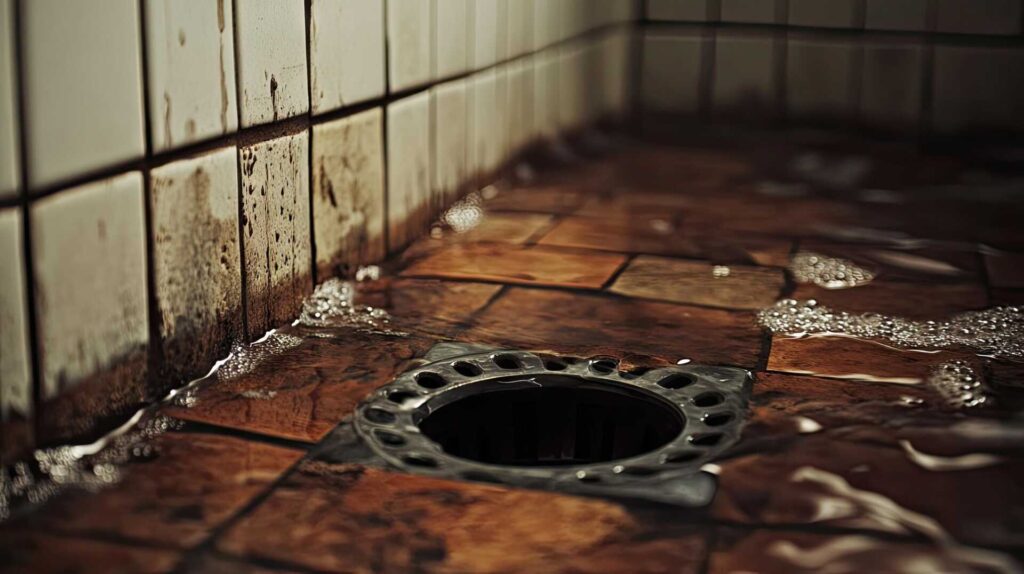
Contents
You may not realize the importance of implementing effective measures to prevent sewage backups until it’s too late. By incorporating simple yet vital steps into your maintenance routine, you can greatly reduce the risk of costly and unsanitary incidents. From routine inspections to strategic waste disposal practices, these top prevention tips are essential for safeguarding your property. But there’s one key strategy that often gets overlooked, and it could be the game-changer in your defense against sewage mishaps.
Key Takeaways
- Conduct annual sewer line inspections to detect blockages and leaks early.
- Use enzyme-based cleaners monthly to prevent organic matter buildup.
- Avoid flushing non-biodegradable items like wipes and grease down drains.
- Install backwater valves to prevent sewage overflow during reverse flow.
- Monitor tree root growth near sewer lines to prevent costly damage.
Regular Inspections
Regular inspections are essential in preventing sewage backups in your home. By routinely examining your sewage system and conducting proper plumbing maintenance, you can avoid potential issues that may lead to costly and unsanitary backups.
Start by scheduling annual inspections with a professional plumber to assess the condition of your sewage system. During these inspections, the plumber will check for any signs of blockages, leaks, or damage in the pipes. By addressing these issues early on, you can prevent them from escalating into larger problems that could result in sewage backups.
In addition to professional inspections, you should also perform regular visual checks of your plumbing system. Look for any signs of water pooling around drains, slow drainage, or unusual odors coming from your pipes. These could indicate potential issues in your sewage system that require immediate attention.
Furthermore, proper plumbing maintenance is vital in preventing sewage backups. Avoid flushing items such as grease, paper towels, or hygiene products down the toilet, as these can clog your pipes and lead to backups.
Make sure to dispose of waste properly and adhere to recommended maintenance practices to keep your sewage system functioning smoothly.
Proper Waste Disposal
Proper waste disposal is essential for maintaining a healthy plumbing system.
By disposing of waste correctly, you can prevent clogs and blockages that lead to sewage backups.
Responsible chemical usage also plays a significant role in ensuring the smooth flow of waste through your pipes.
Waste Disposal Importance
To ensure the effective management of waste and reduce the risk of sewage backup incidents, it is essential to prioritize the proper disposal of waste materials. Proper waste disposal plays a vital role in waste management and has a significant impact on the environment. By disposing of waste correctly, you can help prevent pollutants from entering water systems and avoid potential blockages in sewage lines. Here are some key waste disposal practices to keep in mind:
| Waste Disposal Importance | Tips for Proper Disposal |
|---|---|
| Separate recyclables from regular waste | Recycle paper, plastics, and glass separately |
| Avoid flushing non-biodegradable items | Dispose of items like wipes and sanitary products in the trash |
| Use garbage disposals wisely | Avoid putting large food scraps or oils down the disposal |
| Properly seal garbage bags | Prevent leaks and spills that can attract pests |
| Dispose of hazardous waste responsibly | Take chemicals, batteries, and electronics to designated drop-off locations |
Prevent Clogs and Blockages
To prevent clogs and blockages in your sewage system, it’s essential to ensure that waste disposal is carried out correctly and efficiently.
Clog prevention starts with being mindful of what goes down your drains. Avoid flushing items like paper towels, feminine hygiene products, grease, or large food scraps down the toilet or sink. These items can easily lead to blockages in your pipes.
Additionally, consider installing drain filters to catch hair and debris before they cause obstructions.
Regularly cleaning your drains can also help prevent clogs. Use a mixture of hot water, vinegar, and baking soda to break down buildup in your pipes.
For more stubborn blockages, a drain snake can be used to clear the way. It’s important to address slow drains promptly to prevent them from turning into full-blown clogs.
Responsible Chemical Usage
When it comes to maintaining a healthy sewage system, responsible chemical usage and proper waste disposal practices play an essential role in preventing potential issues.
It’s vital to use chemicals safely and dispose of them properly to ensure the longevity of your sewage system and prevent backups. When using chemicals for cleaning or maintenance, opt for eco-friendly alternatives to minimize the environmental impact. These alternatives are often biodegradable and less harmful to the sewage system compared to harsh chemicals.
In addition, always follow instructions carefully when using any chemicals to prevent accidental damage to your plumbing.
Proper waste disposal is equally important in preventing sewage backups. Avoid flushing items like diapers, paper towels, and hygiene products down the toilet, as they can cause blockages.
Moreover, dispose of hazardous chemicals like paints, oils, and solvents through designated channels rather than pouring them down the drain.
Install Backwater Valves
Consider installing backwater valves in your sewer system to prevent sewage backups. Backwater valves offer numerous benefits in safeguarding your home against potential sewage overflow.
These valves are designed to automatically close when they detect a reverse flow of sewage, thereby preventing contaminated water from entering your property.
The installation of backwater valves is a proactive measure that can save you from the headaches and expenses associated with sewage backups. By having these valves in place, you can minimize the risk of damage to your belongings, the structural integrity of your home, and the health hazards posed by exposure to sewage.
When it comes to installation, it’s essential to hire a professional plumber with experience in fitting backwater valves. Proper installation is key to ensuring that the valves function effectively when needed.
Additionally, regular maintenance and inspections are vital to keep the valves in ideal condition and ready to act promptly in case of a sewage backup.
Investing in backwater valves is a wise decision to protect your property and loved ones from the devastating effects of sewage backups. By taking this preventive step, you can have peace of mind knowing that your home is equipped with a reliable defense mechanism against potential sewage-related disasters.
Maintain Sewer Lines
For effective sewage backup prevention, maintaining your sewer lines is vital. Regular sewer maintenance and line cleaning are important steps to ensure the proper functioning of your plumbing system and prevent backups.
Over time, debris, grease, and other substances can build up inside your sewer lines, leading to clogs and potential overflows.
To maintain your sewer lines, consider scheduling professional sewer line cleaning at least once a year. A professional plumber can use specialized equipment to remove any blockages and buildup, assuring that your sewer lines are clear and free-flowing.
Additionally, using enzyme-based cleaners on a monthly basis can help prevent organic matter from accumulating in your pipes.
In addition to professional cleanings, there are preventive measures you can take to maintain your sewer lines. Avoid flushing items like paper towels, wet wipes, or grease down your drains, as these can contribute to clogs.
It’s also important to be mindful of what goes down your garbage disposal, as certain foods can cause blockages in your sewer lines.
Monitor Tree Root Growth
To prevent tree roots from causing damage to your sewer lines, it’s essential to monitor their growth regularly.
Tree roots can infiltrate and clog sewer pipes, leading to costly and disruptive repairs.
Consider installing root barriers near your sewer lines to prevent root intrusion and maintain the integrity of your plumbing system.
Tree Root Damage
To prevent tree root damage and potential sewage backup risks in your property, it’s essential to stay proactive in monitoring the growth of tree roots.
Tree root invasion into sewer lines is a common cause of sewage backups. Roots are naturally drawn to the moisture and nutrients inside pipes, causing them to grow and expand, eventually leading to blockages and damage. Implementing root growth management techniques can help mitigate this risk.
Regularly inspect the area around your sewer lines for signs of tree root intrusion. Look for indentations in the ground, lush patches of grass, or unexpected sinkholes, as these could indicate root growth toward your pipes.
Consider planting trees away from sewer lines to prevent future issues. If you already have trees near your sewer system, consult with a professional to assess the risk and potential solutions for managing root growth.
Regular Inspections Needed
Regular inspections play an essential role in maintaining the health of your sewer lines and preventing potential tree root damage that could lead to sewage backups.
To safeguard your sewage system, it’s crucial to conduct regular inspections to monitor tree root growth. Tree roots are naturally attracted to the moisture and nutrients inside sewer pipes, leading to invasive growth that can cause blockages and leaks.
The frequency of these inspections can vary depending on factors such as the age of your plumbing system, the presence of nearby trees, and any previous root intrusion incidents. As a general guideline, it’s recommended to have your sewer lines inspected annually, especially if you have trees close to your underground pipes.
Root Barrier Installation
With the ongoing growth of tree roots posing a potential threat to your sewer lines, implementing a root barrier installation can be a proactive measure to monitor and control tree root intrusion.
Root barriers act as a physical barrier that helps prevent roots from encroaching on underground pipes. By installing these barriers strategically around your sewer lines, you can effectively manage root growth and reduce the risk of blockages and damages to your plumbing system.
When considering root barrier installation, it’s essential to assess the effectiveness of the barriers in deterring root growth. Choose barriers made from durable materials that can withstand root pressure and are designed to last long term.
Regular monitoring of the barriers is vital to ensuring their correct functioning and preventing roots from infiltrating your sewer lines.
Monitoring tree root growth and the effectiveness of your root barriers is key to maintaining the integrity of your sewer system.
Professional Sewage Cleanup
Seeking professional sewage cleanup services is essential when dealing with a sewage backup situation. When faced with sewage contamination in your home, it’s vital to understand the potential health hazards associated with exposure to raw sewage.
Professional sewage cleanup teams are equipped with the necessary expertise, equipment, and protective gear to safely and effectively handle sewage spills, minimizing the risk of exposure to harmful pathogens.
Sewage backup can introduce a variety of hazardous substances into your living environment, including bacteria, viruses, parasites, and toxic chemicals. These contaminants pose serious health risks, such as gastrointestinal infections, respiratory issues, skin irritation, and allergic reactions.
Attempting to clean up sewage on your own without the proper training and protective measures can result in the further spreading of contaminants and increased health hazards.
Professional sewage cleanup experts follow industry best practices and safety protocols to ensure thorough decontamination and sanitization of the affected area.
They utilize specialized cleaning agents, disinfectants, and equipment to remove sewage residues, eliminate odors, and restore a safe and healthy living environment.
Review
Now that you’ve learned the top sewage backup prevention tips remember that just like tending to a garden prevents weeds from taking over, regular maintenance of your sewer lines prevents costly backups. By staying proactive with inspections, proper waste disposal, and installing backwater valves, you’re safeguarding your home against potential water damage. Don’t wait until it’s too late – take action now to protect your property and your peace of mind.
Recent Posts
Mastering Biohazard Sewage Cleanup Techniques
Is it really worth the risk to tackle biohazard sewage cleanup without the right techniques?
Top Leak Detection Services for Homeowners
Is it true that most homeowners underestimate the impact of undetected leaks? You might think
What Are Effective Sewage Cleanup Solutions?
You might not realize that improper sewage cleanup can lead to long-term health risks and

